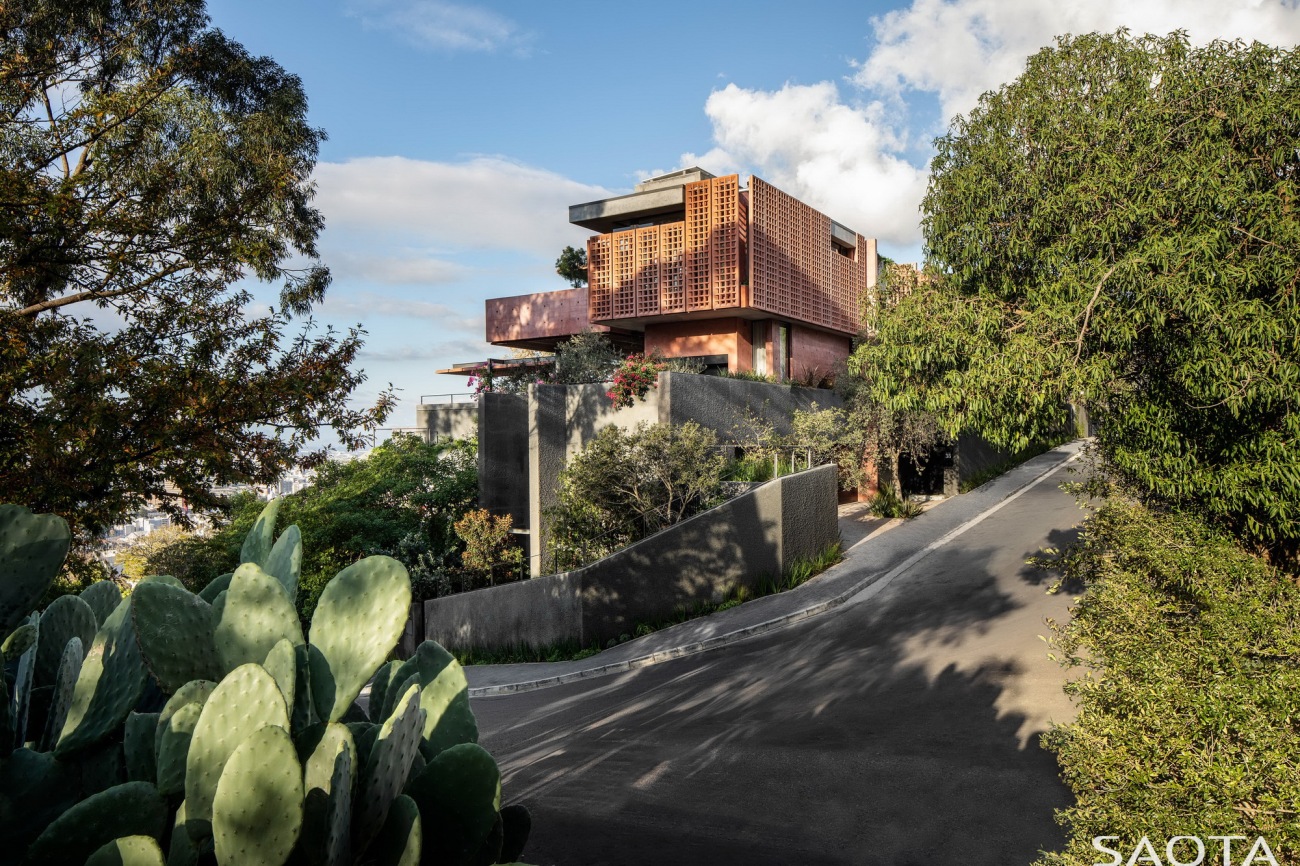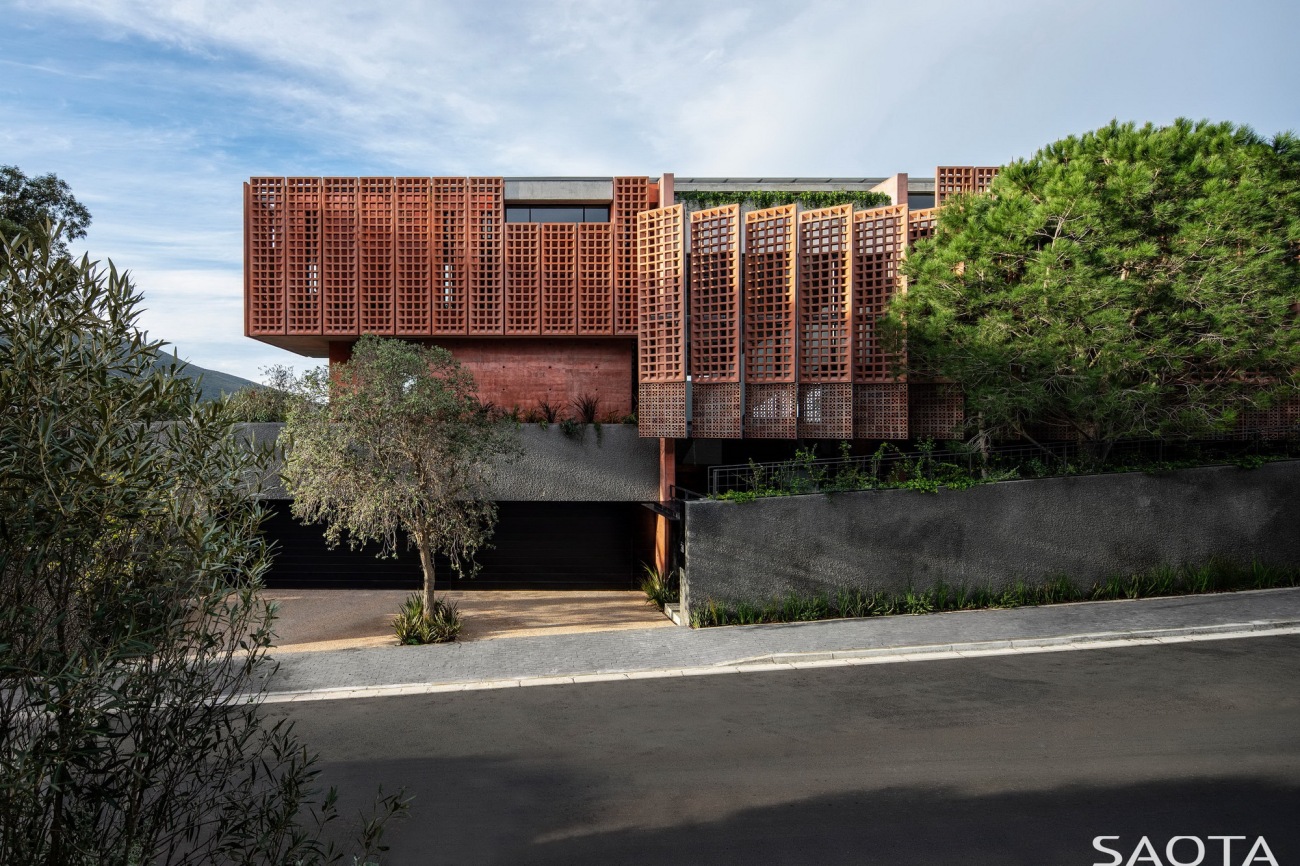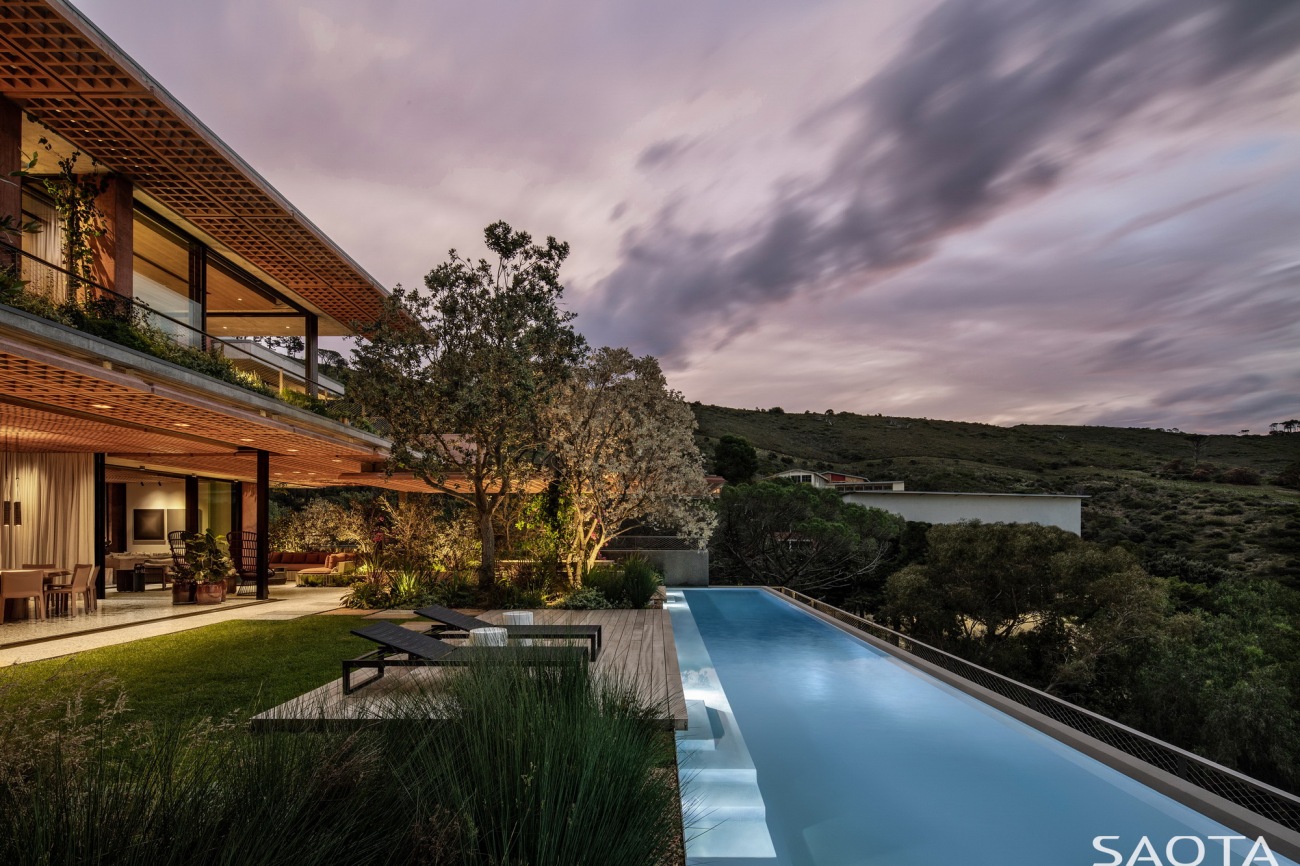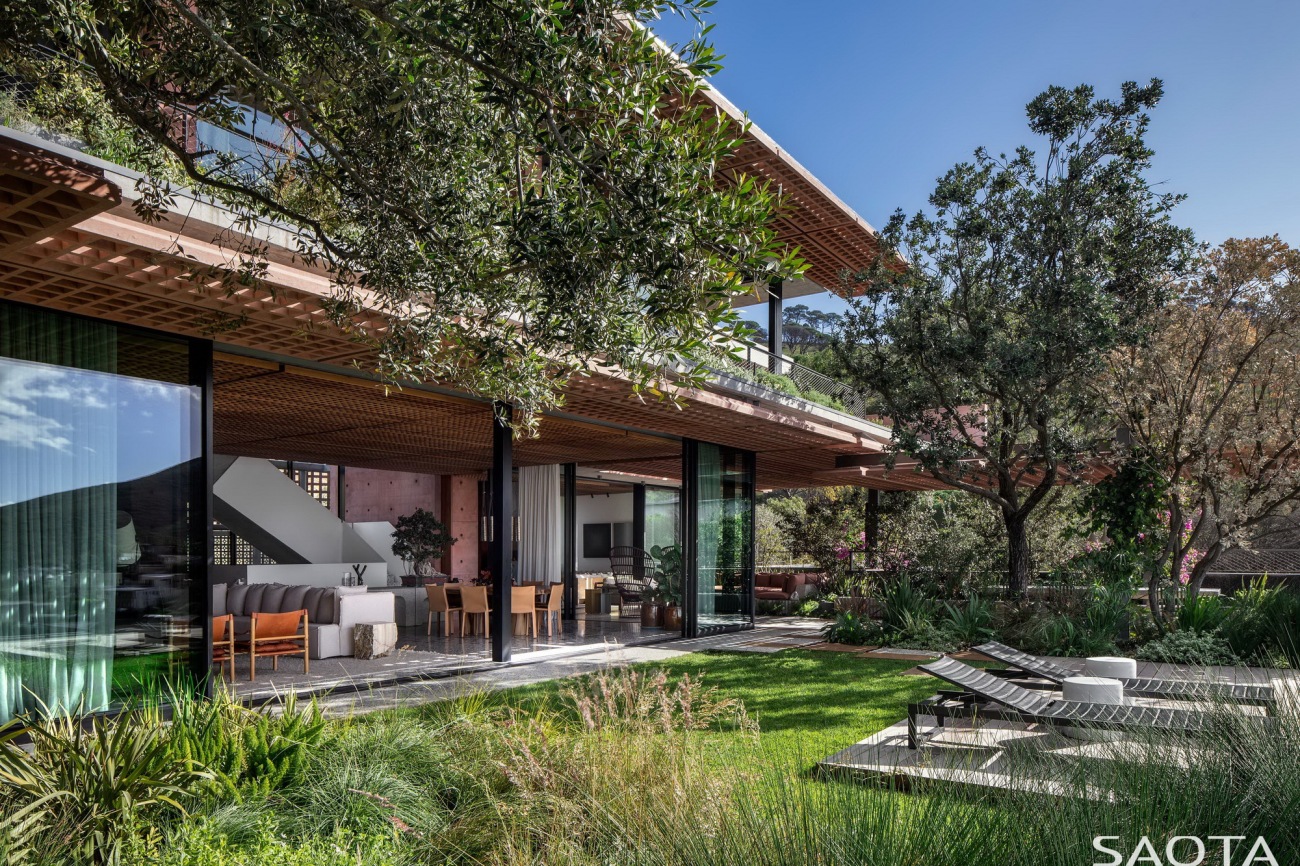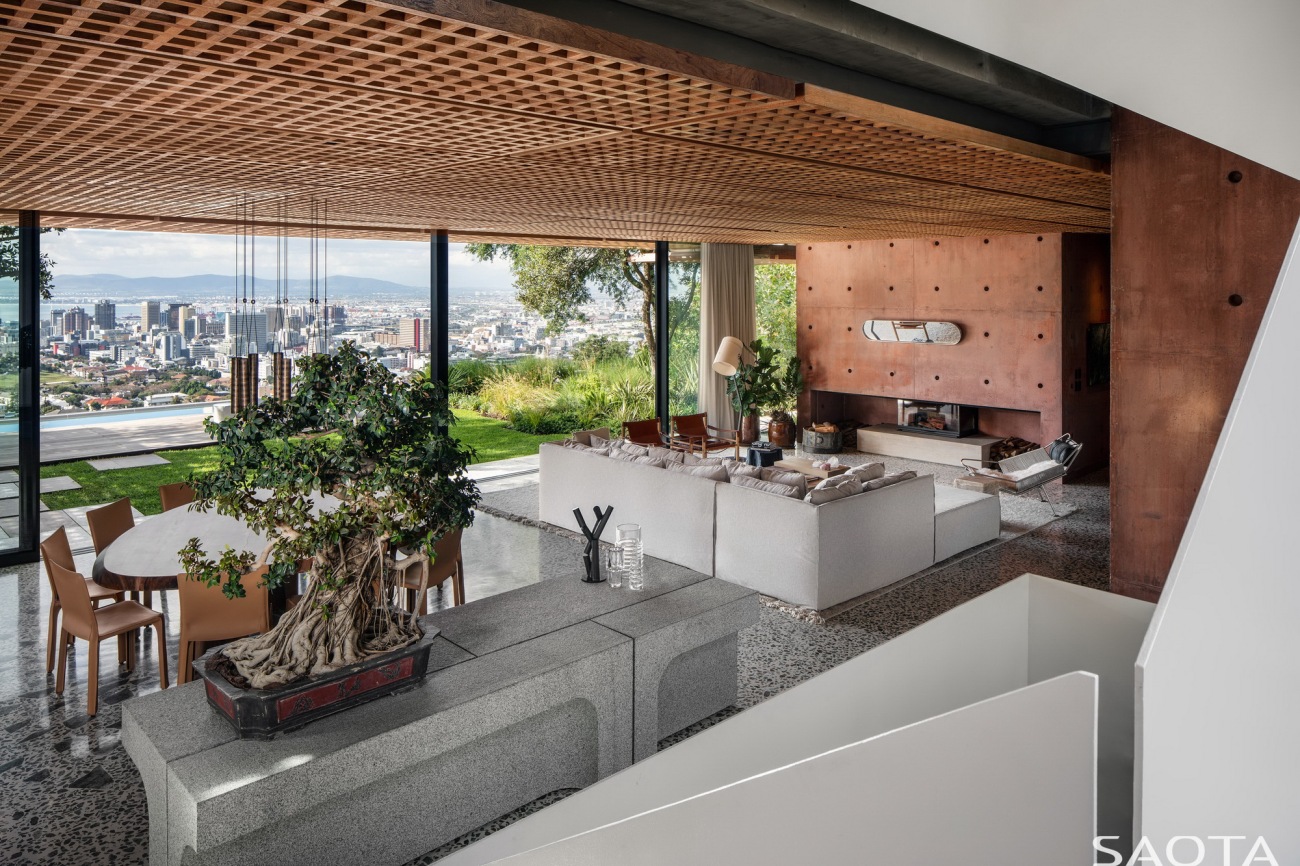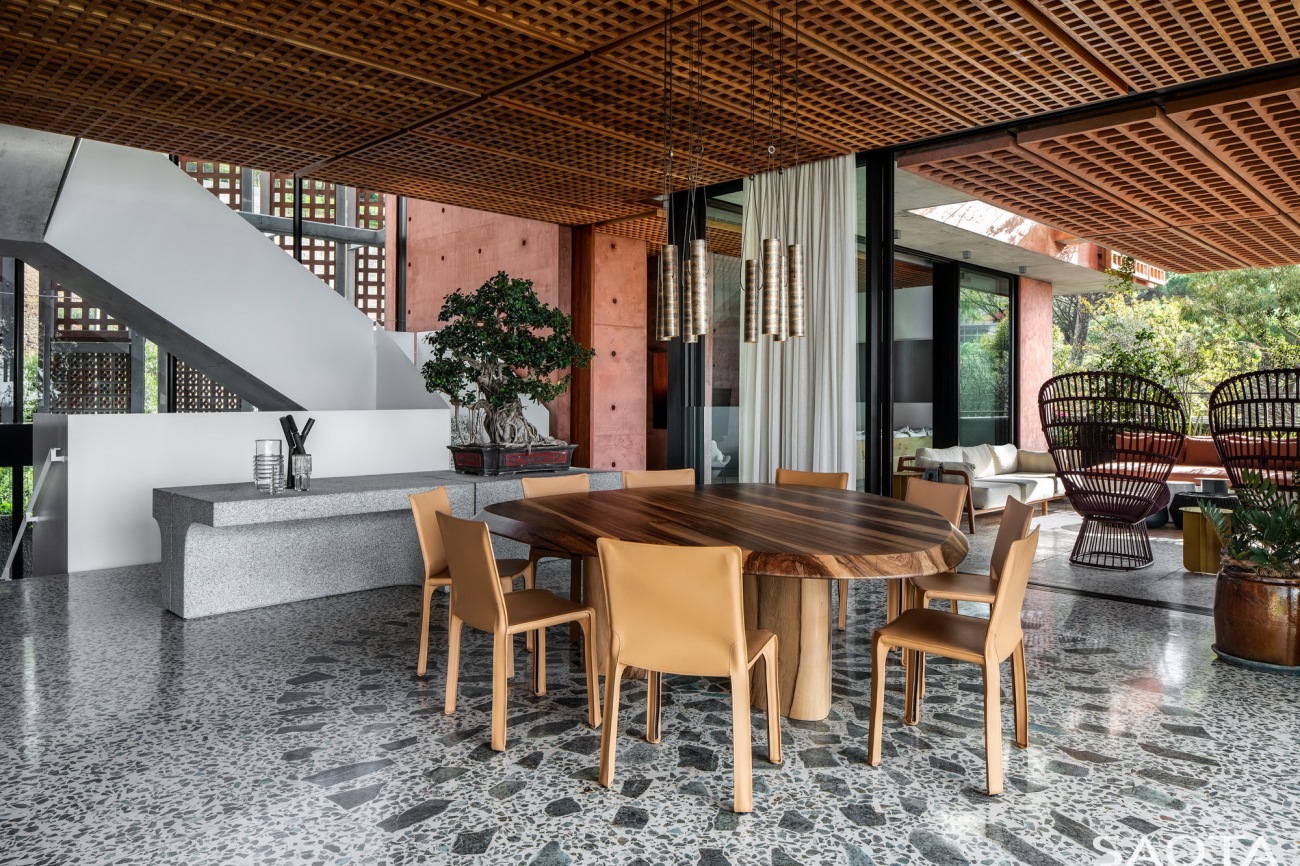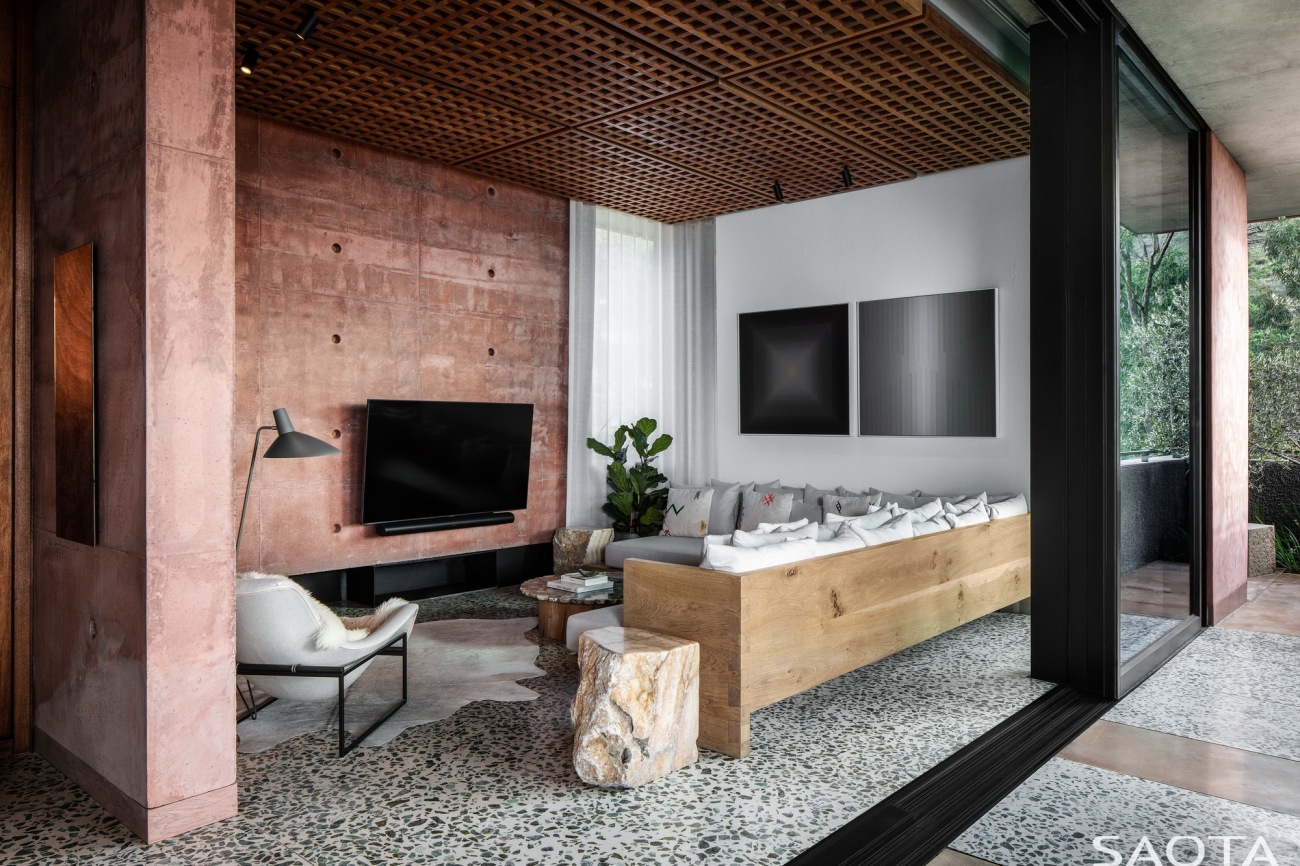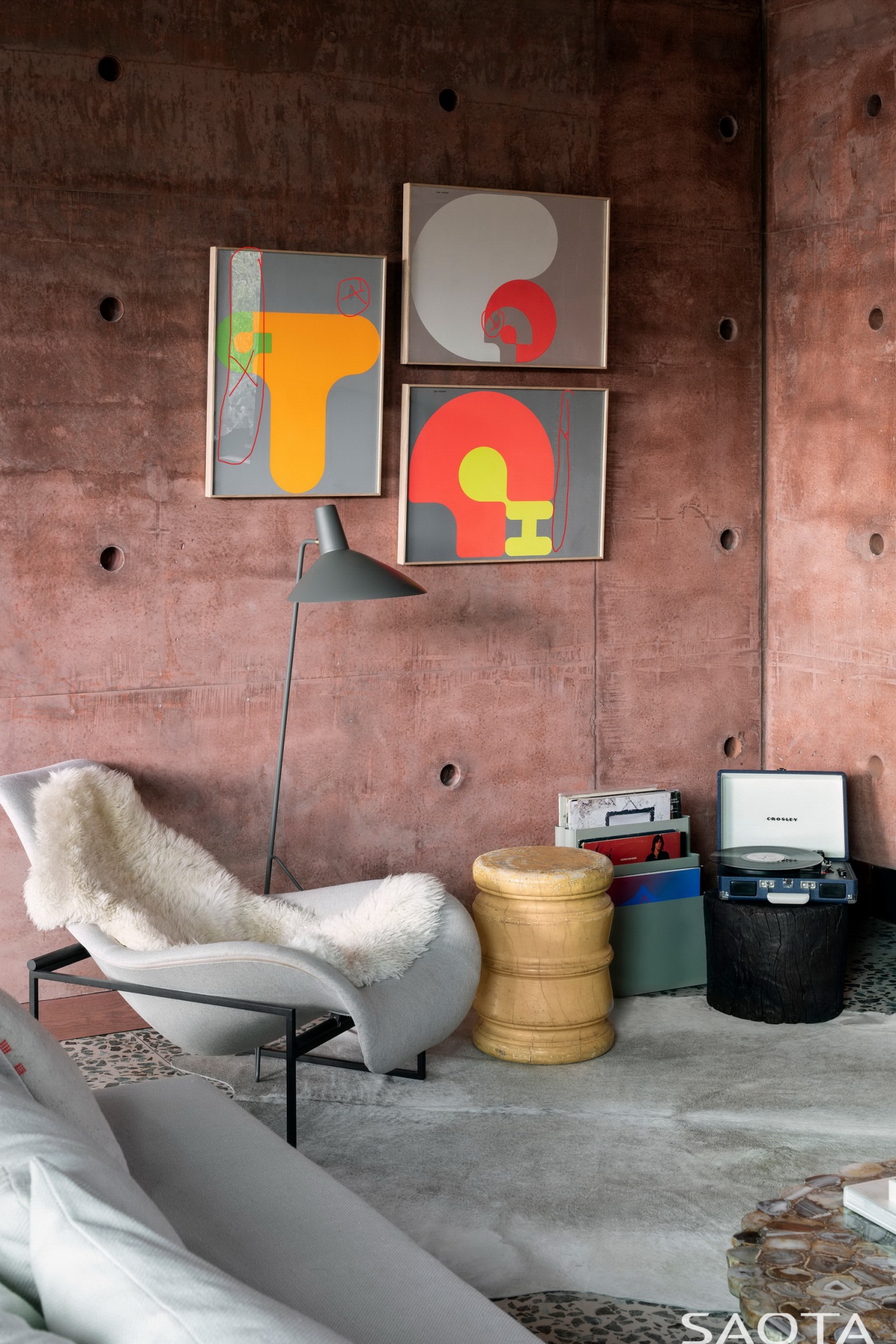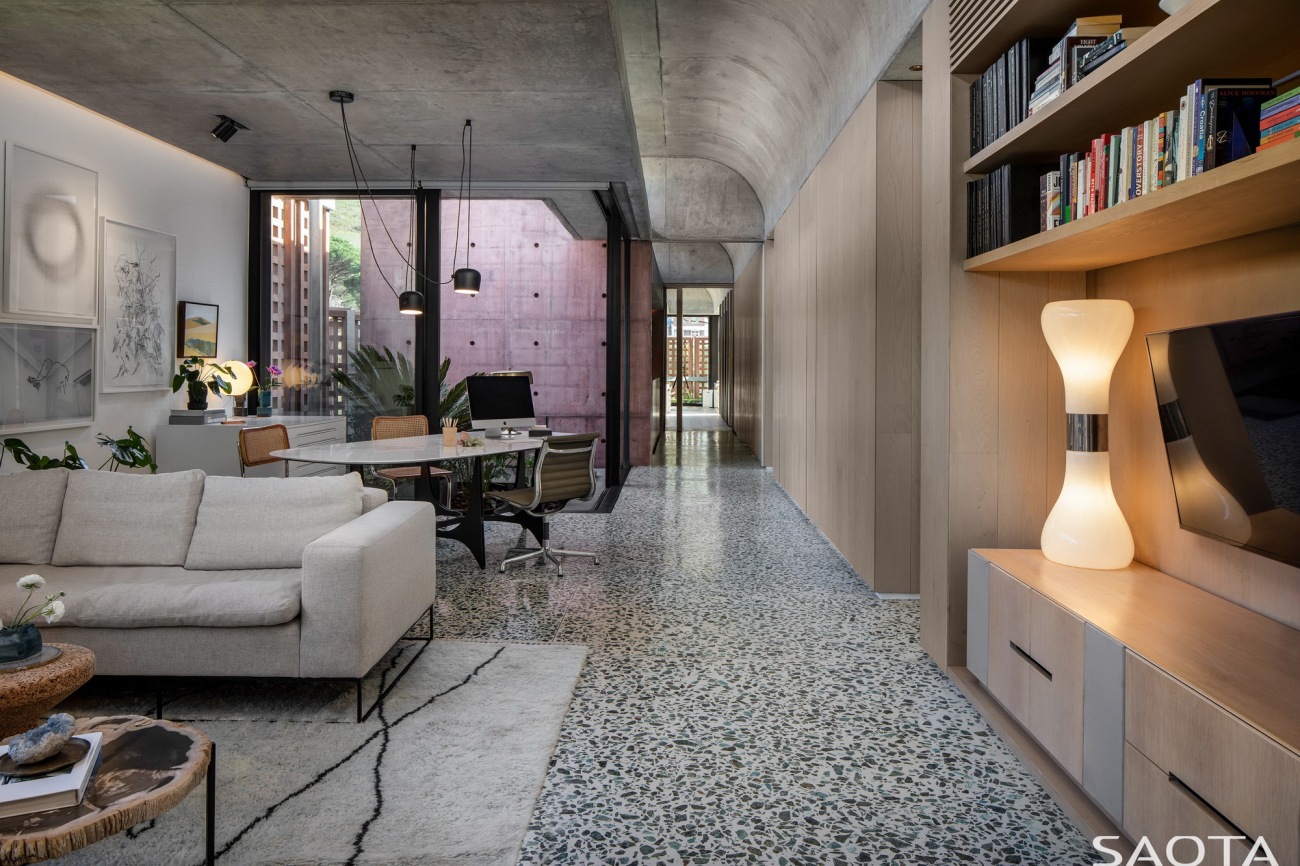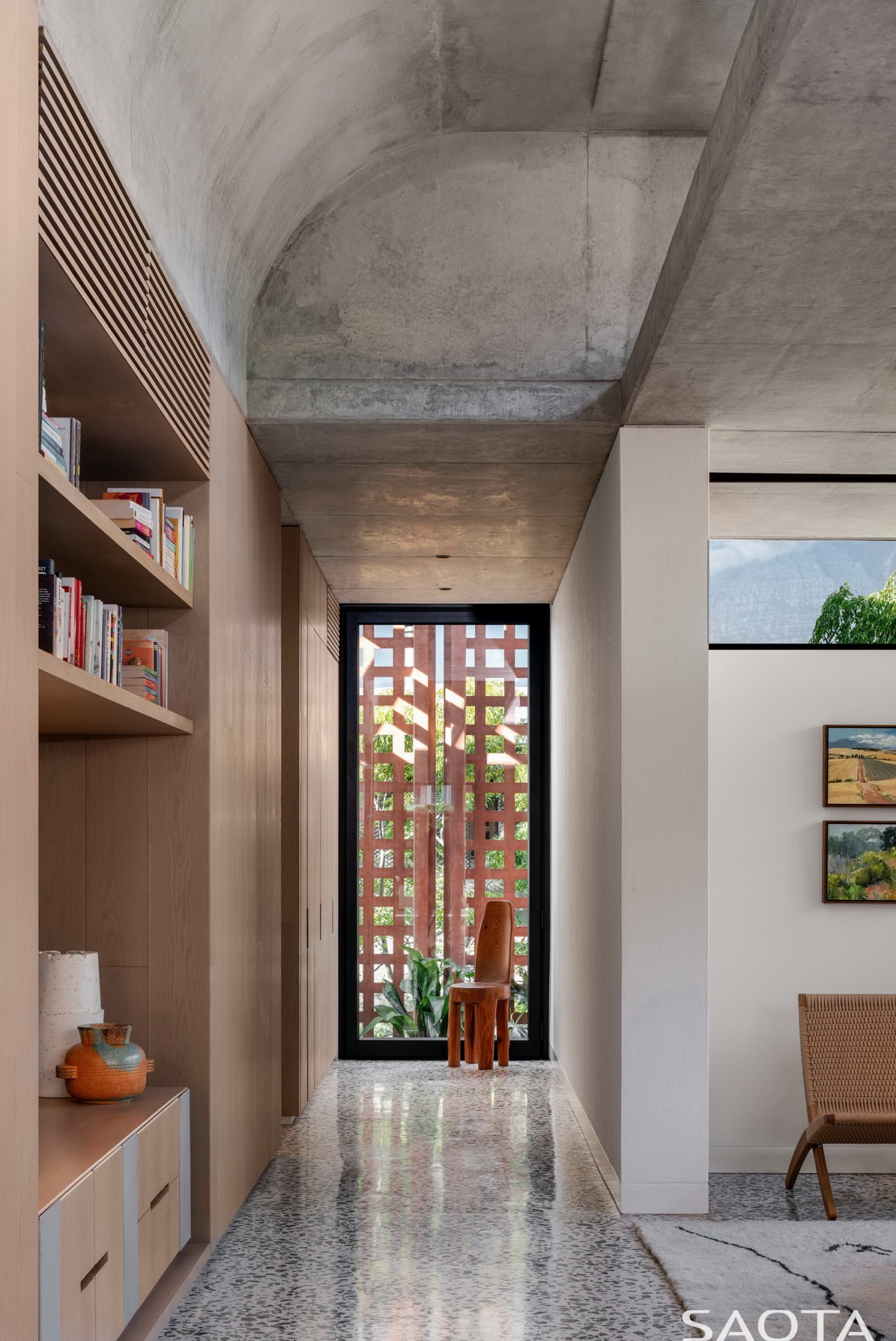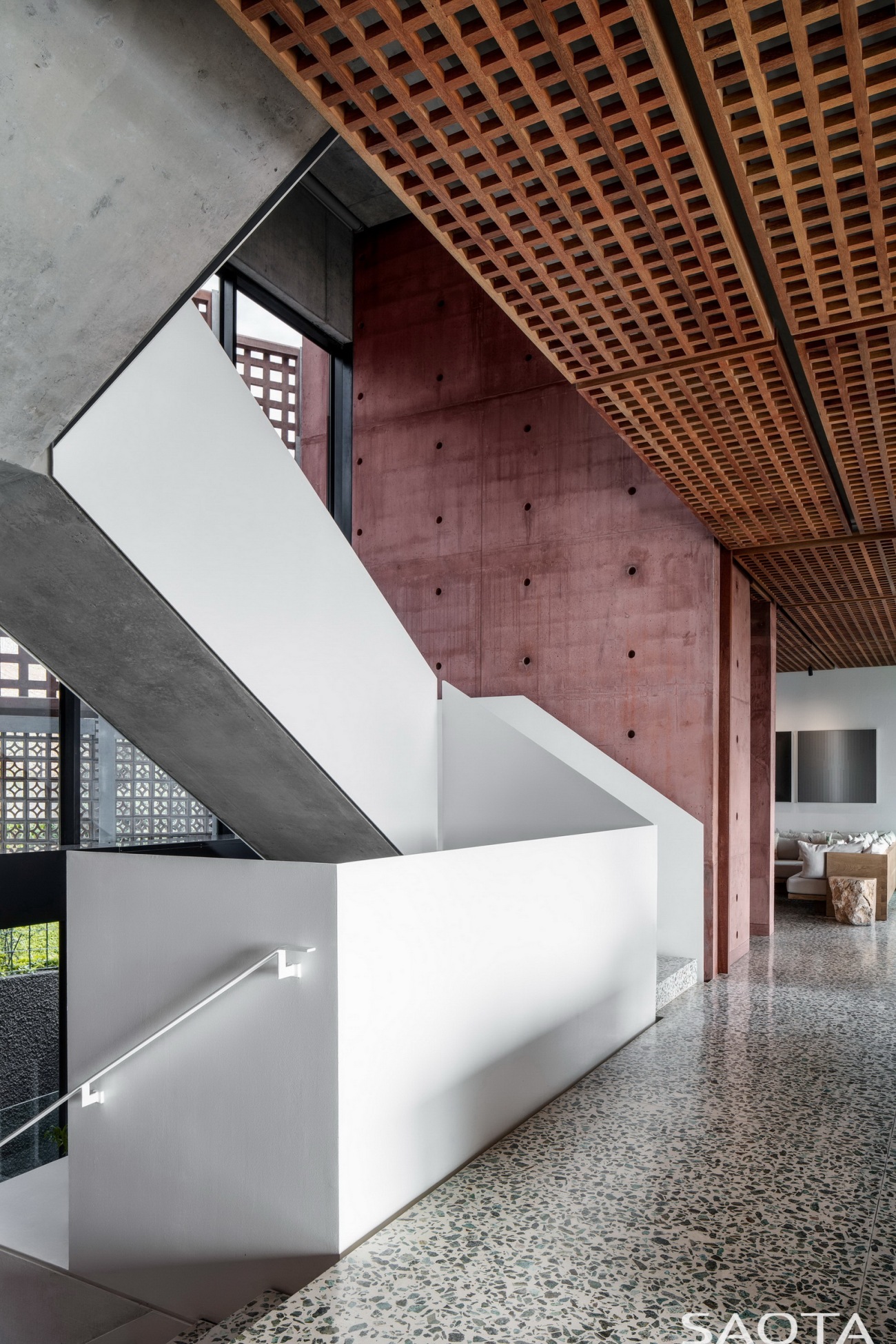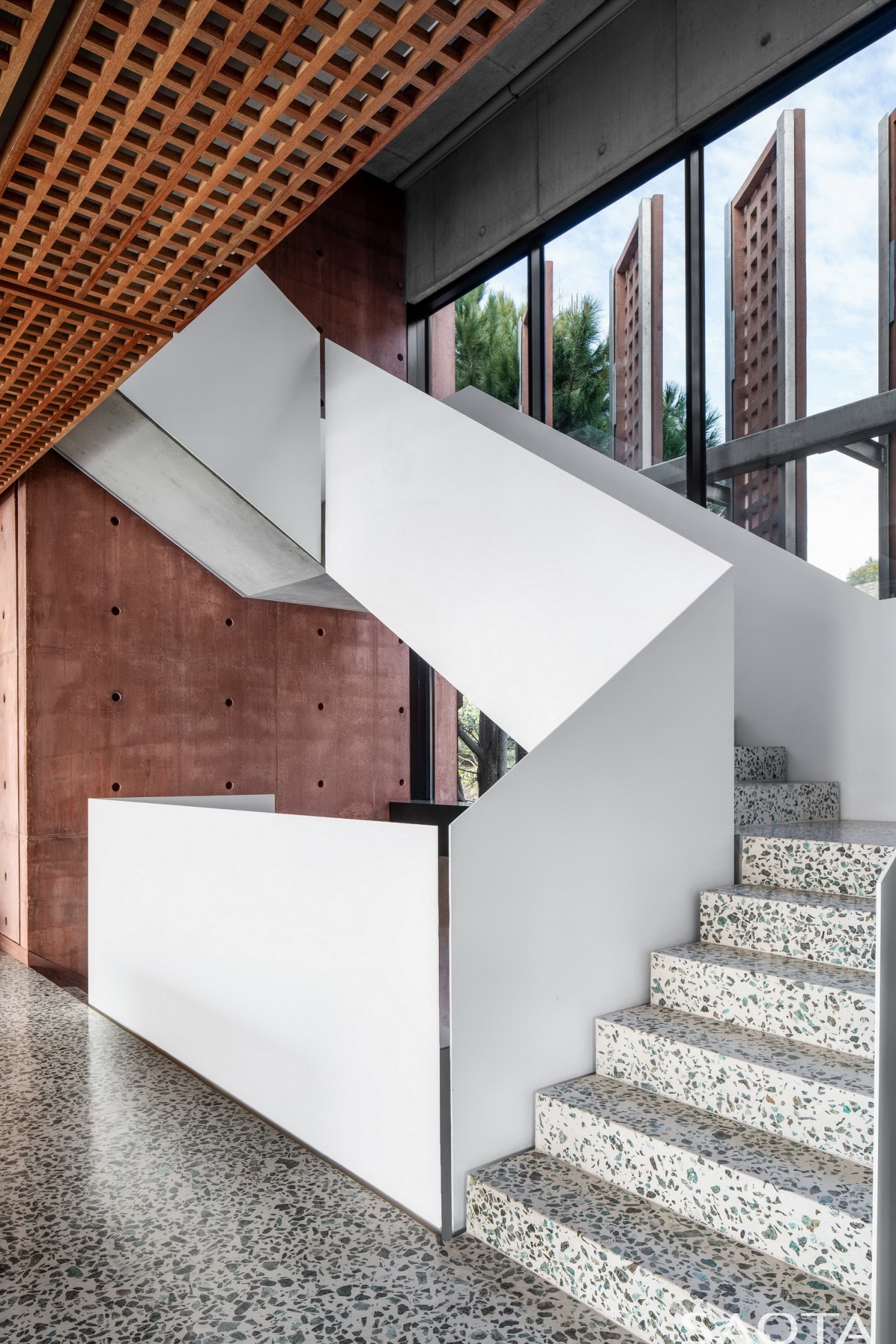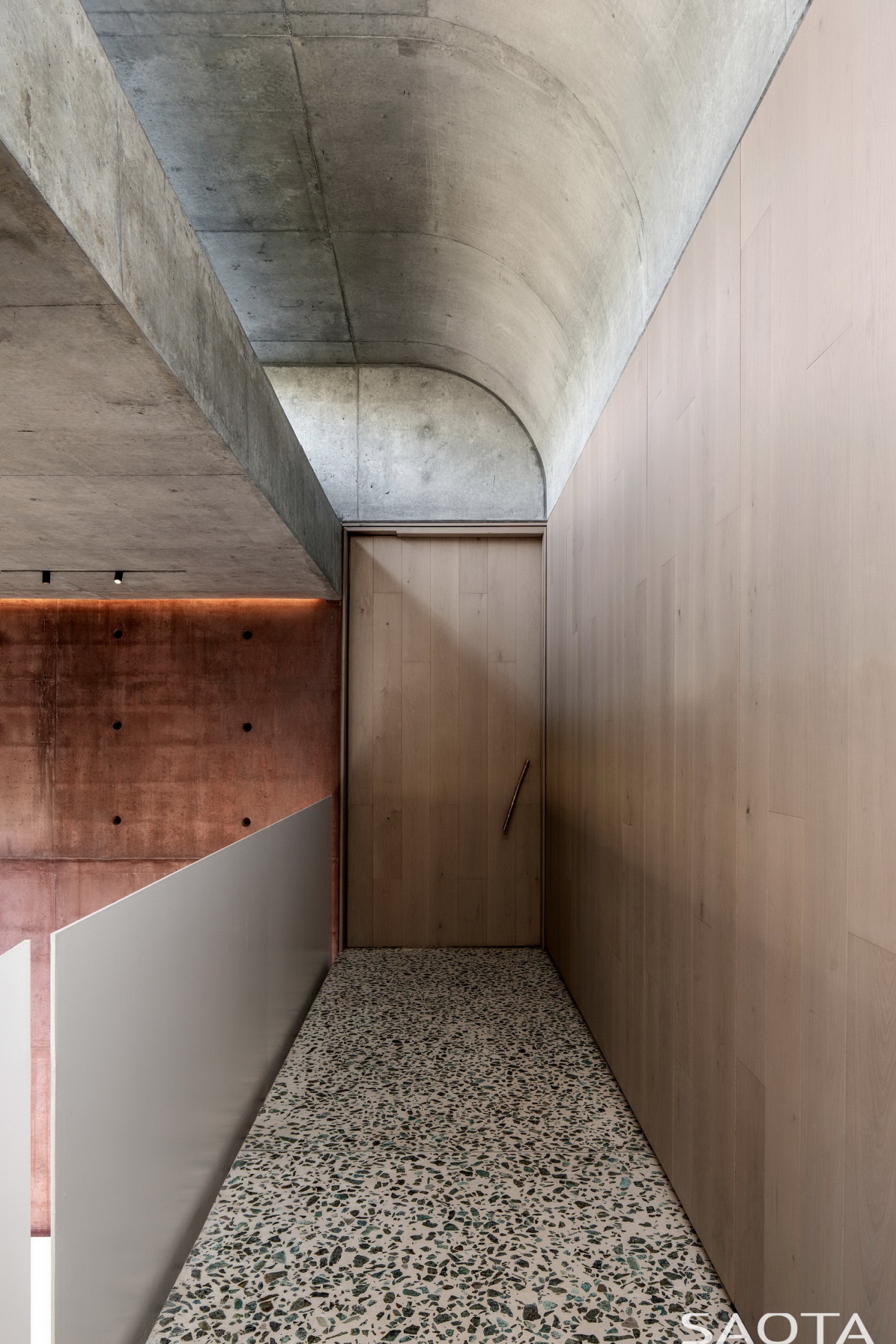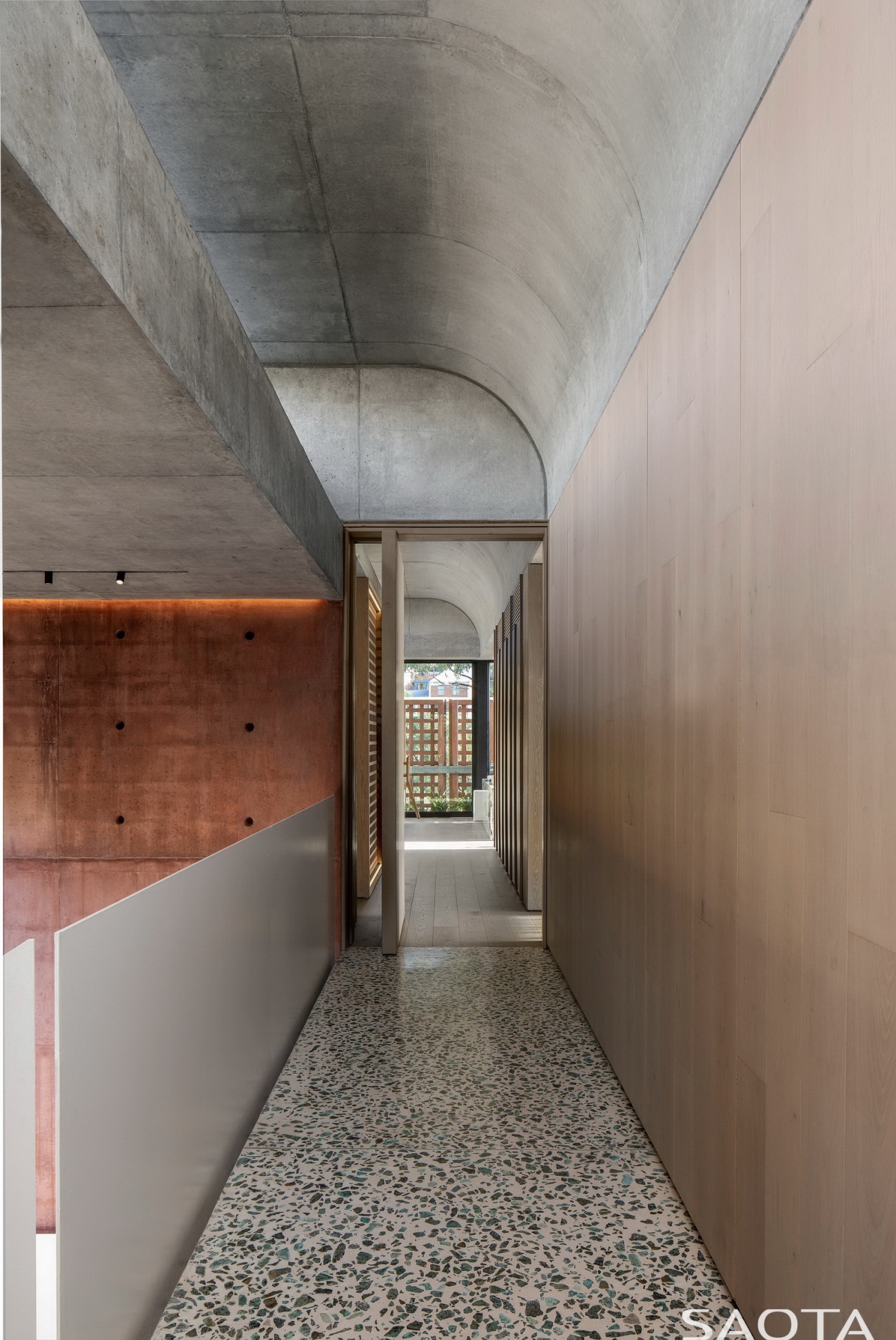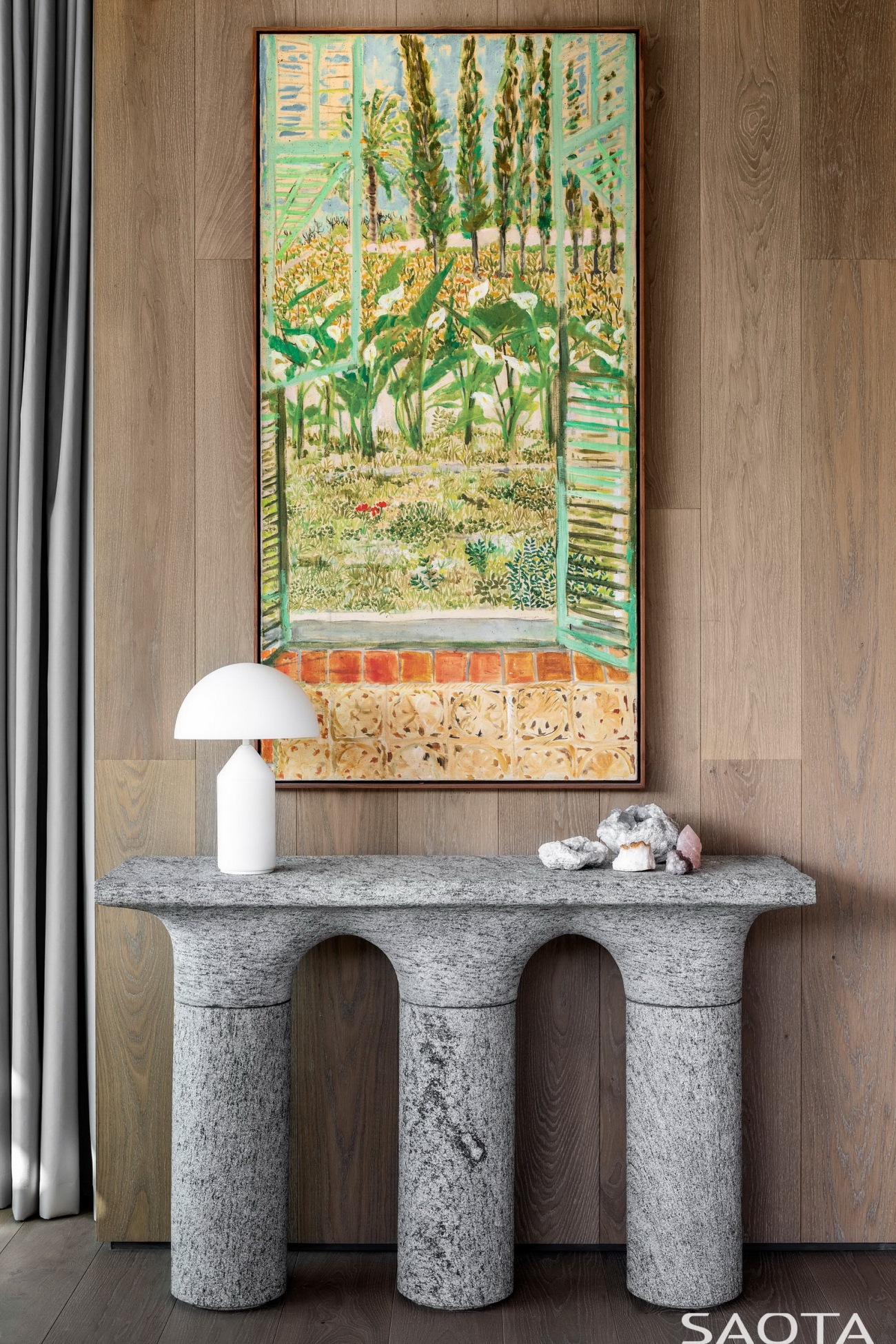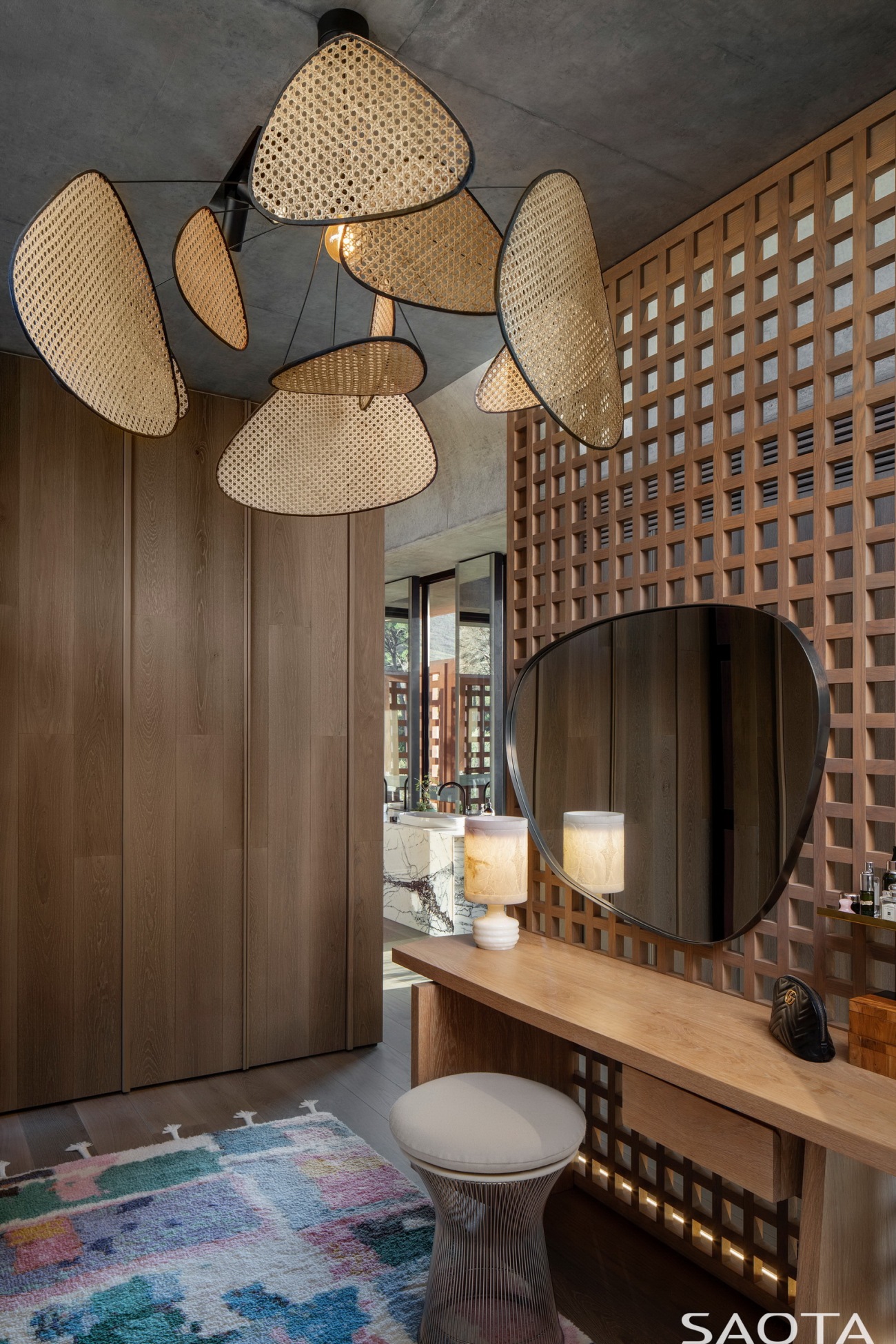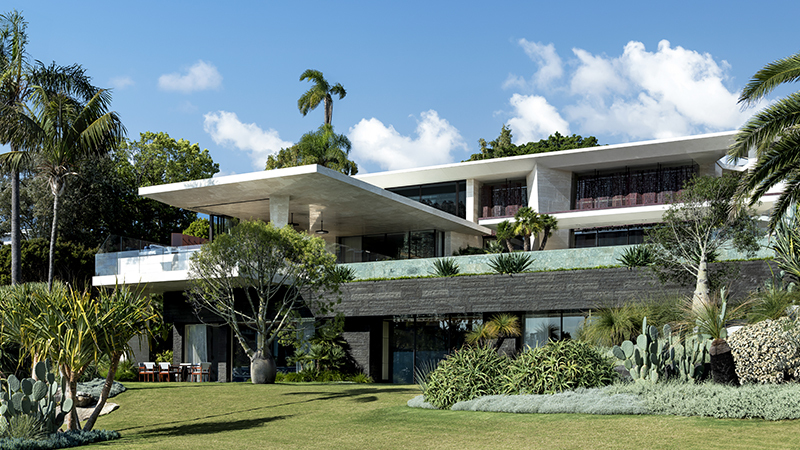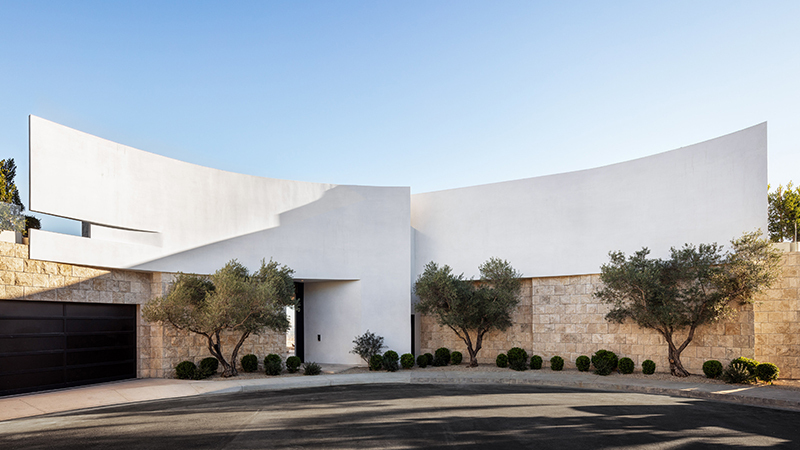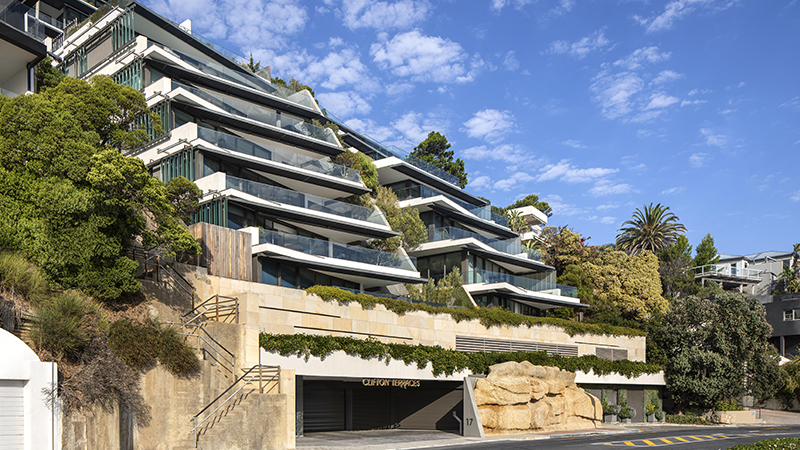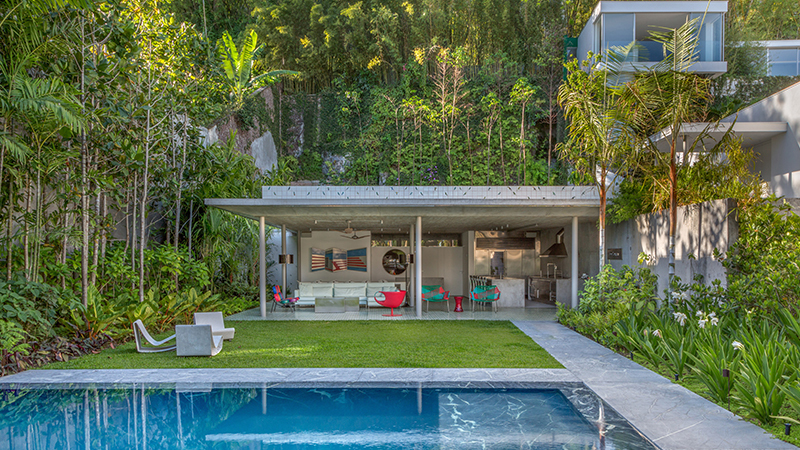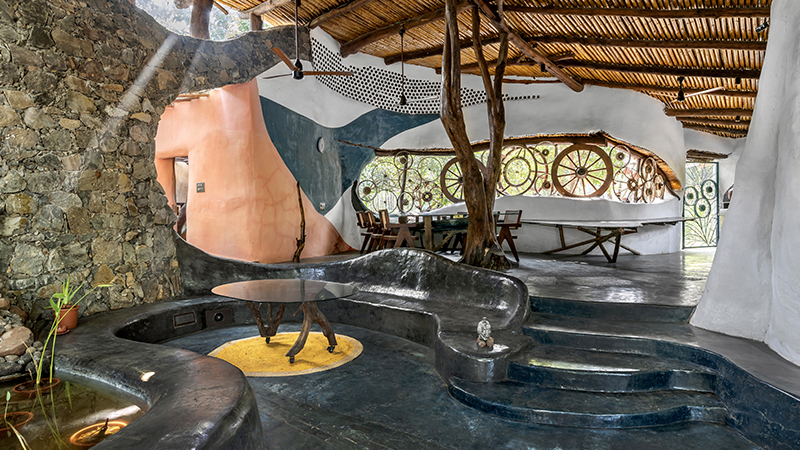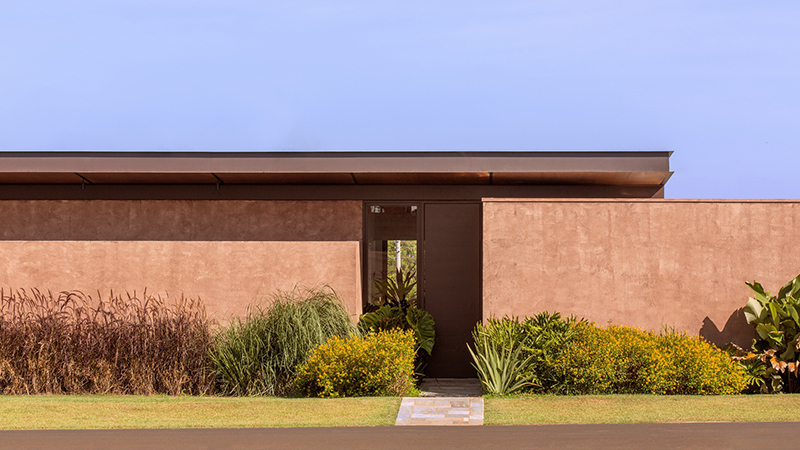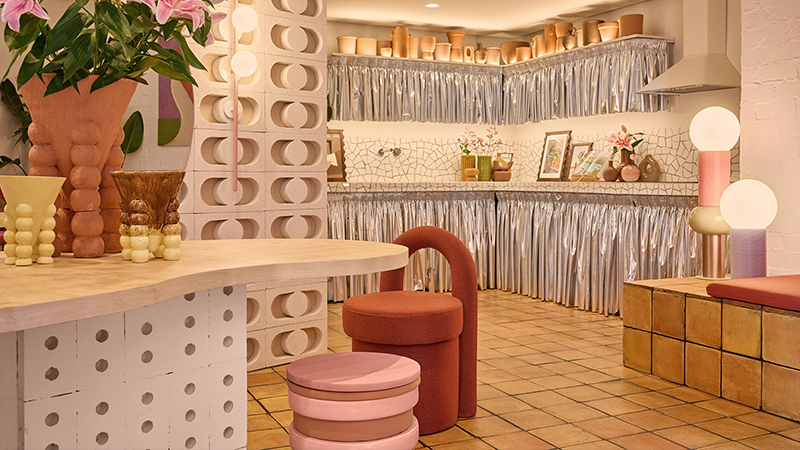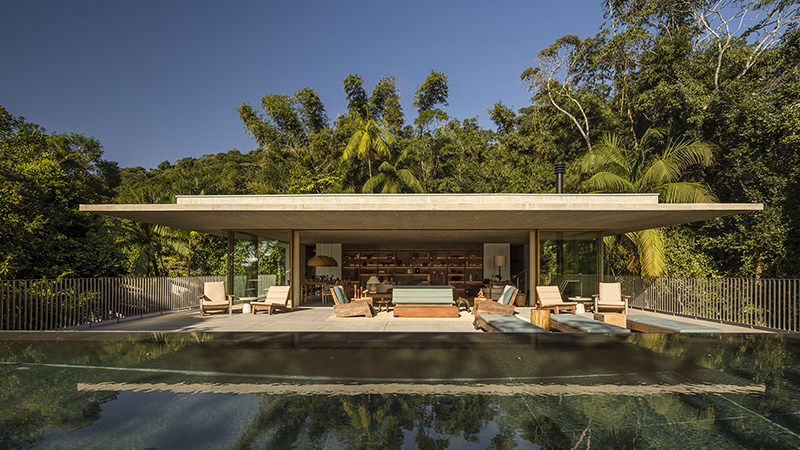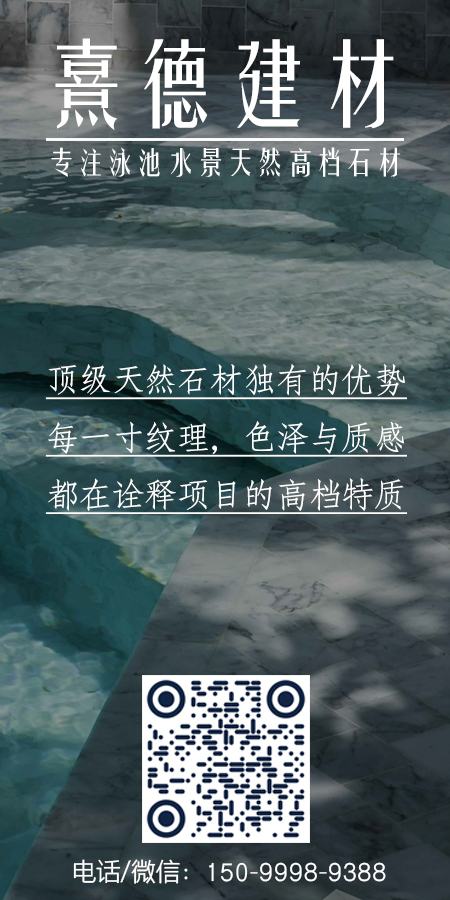位于开普敦的SAOTA工作室的首席建筑师Philip Olmesdahl,在这个市中心地点附近居住了超过15年,一直对它赞叹不已,直到最终设法将其买下。然而,时机却恰到好处。他说:“当孩子们进入十几岁时,我们需要一个更宽敞的家。”
Architect Philip Olmesdahl, principal at Cape Town-based studio SAOTA, had been living near this site in the city bowl for more than 15 years, admiring it, before he managed to secure it for himself. The timing, however, was perfect. “We needed a more spacious home for my family when the children got into their teenage years,” he says.
作为自己的客户,Philip有机会突破界限,将多年与SAOTA设计房屋的经验与一些更为异想天开和实验性的元素相结合。他说,“当建筑师设计自己的家时,他们可以更有乐趣,也可以少一些理智。”这并不意味着他自己的家的设计思路较少严谨,而是Philip能够借此机会探索建筑理念,而无需一定要提出明确的陈述或决定性理论,还能融入个人情感和偏好。
Being his own client offered Philip the opportunity to push boundaries – combining wisdom earned designing houses with SAOTA over the years with something a bit more whimsical and experimental. “When architects design their own homes,” he says, “they can have a bit more fun; they can be a little bit less intellectual”. That doesn’t mean that the design of his own home is any less rigorously thought-out, but rather that Philip could take the opportunity to explore architectural ideas without necessarily feeling the need to present a definitive statement or conclusive theory and weave in personal associations and preferences.
他获得的角落地块地势陡峭,中央有一座“平庸”的60年代牧场风格房屋,这在当时的花园郊区是很典型的。然而,Philip指出,开普敦市在这一地区的密集化战略提供了新的可能性。作为回应,他沿着地势将土地细分,并重新开发,建造了一个拥有五个卧室的家庭住宅在上部,以及两个拥有四个卧室的出租公寓在下部。Philip表示:“我们的目标是创造一座房子,既能享受城市的活力和能量,同时也在一个变化的城市环境中重新营造出花园郊区独立住宅的某种精神。”
The corner site he secured was steep and had an “unmemorable” 60s ranch-style house in the centre of a large garden, as was typical of the garden suburbs of the era. Philip points out, however, that the City of Cape Town’s densification strategy in this area presented new possibilities. In response, he subdivided the property along a contour and redeveloped it to create a five-bedroom family home on the upper section and two four-bedroom rental apartments on the lower.“The objective was to create a single house that enjoyed the activity and the energy of the city,” says Philip. At the same time, he sought to recreate something of the spirit of a single standalone house in a garden suburb for a changed urban context.
从概念上看,主要住宅与下方的住宿之间由一堵共用墙分隔,这一设计借鉴了该地区历史上的排屋特点。但在设计主要住宅时,Philip并没有在地面层设置花园,而是将住宅的平面延伸到后退区域,从而在较低的两个层面上创造了一个基座。他说:“我想在天空中建造我的花园。”这个基座包括了车库、健身房、客人和员工住宿,以及杂物间。而上面两个层面则用于居住空间,从那个高度,可以最大程度地欣赏城市的壮丽景色。第三层包括居住区和一个有遮盖的户外露台。最上层包括四个带浴室的卧室,还有一个小型休息室和书房,其中包括了一个宽敞的办公室供Philip使用,以及一个供他妻子做瑜伽的工作室。
Conceptually, the relationship between the main house and the accommodation below, separated by a shared wall, references the row houses that historically characterise the area. When it came to designing the main house, however, instead of a garden on the ground level, Philip extended the footprint of the house right out to the setbacks to create a podium on the lower two levels. “I wanted to build my garden up in the sky,” he says.The podium includes garages with a gym, guest and staff accommodation, and utility rooms. The upper two levels are dedicated to the living space, which, from that height, can take maximum advantage of the spectacular views of the city. The third level accommodates the living area and a covered outdoor terrace. Four ensuite bedrooms plus a small lounge and study occupy the uppermost level, including a generous office for Philip and a yoga studio for his wife.
从街道上看,界墙和基座采用了灰色颗粒状石膏装饰,这是对开普敦20世纪中期住宅建筑的致敬,同时也与开普敦大学校园及其在城市建筑遗产中的显赫地位相关。然而,这座建筑的主要特色是上层采用独特的红色颜料的露胶混凝土,尤其是安装在钢框架上的角形预制混凝土屏风,这些屏风为广泛的立面玻璃提供遮荫和隐私保护。Philip表示,颜色的选择部分基于他和家人去墨西哥旅行的回忆。然而,他还重新利用了构成旧界墙的陶瓦风格的空心砖块,他说这些砖块“被拆除、存储、喷砂处理,然后重新建到了结构钢屏风中”。
From the street, the boundary walls and plinth are finished in grey stipple plaster, which is a reference to Cape Town’s mid-century residential buildings and is also associated with the campus of the University of Cape Town and its prominent place in the city’s architectural heritage. However, the building’s primary identity is imparted by the distinctive red-pigmented off-shutter concrete of the upper levels, especially the angled pre-cast concrete screens mounted on steel frames, which provide shading and privacy for the extensive façade glazing. The choice of colour, Philip says, was partly based on memories of a trip he and his family took to Mexico. He also, however, repurposed terracotta breezeblocks that formed part of the old boundary wall, which, he says, were “removed, stored, sandblasted, brought back and built into the structural steel screen”.
然而,这种颜色还表达和强调了混凝土的原始材料性和纹理。Philip表示,像许多建筑师一样,他“热爱事物是如何建造的”,并且这种着迷和愉悦感体现在材料的触感使用和立面的表现性构造元素中。
The colour, however, also expresses and emphasises the raw materiality and texture of the concrete. Philip says that he, like a lot of architects, “loves the way things are built”, and something of that fascination and delight is built into the tactile use of materials and expressive tectonic elements of the facade.
在室内,房屋的特点最好体现在主要的起居空间中,这个空间被构想成一个单一的大型开放式区域,包括客厅、厨房和餐厅。这些空间构成一系列相互重叠、相互连接的空间,这是SAOTA设计的住宅的一个独特特点,形成了一个流畅的生活平台。
Internally, the character of the house is best exemplified by the main living space, which has been conceptualised as a single, large, open-plan area that takes in the living room, kitchen and dining rooms. These constitute a series of overlapping, interconnected spaces, which is a distinctive feature of a SAOTA-designed homes, forming a flowing platform for living.
Philip表示,“清晰的线条、干净的几何形状和触感饰面的对比”是SAOTA的核心理念,“将现代设计与自然材料相结合,以创建一个在建筑上具有进步性的空间,同时也是一个舒适和愉快的居住空间”的理念至关重要。
Philip says that the “contrast of crisp lines, clean geometries and tactile finishes” is central to SAOTA’s approach – “the idea of combining contemporary design with natural materials to create an architecturally progressive space that is also a comfortable and happy space to live in”.
照明也对生活空间的体验至关重要:“整个上层以柔和的光线为特色”,Philip表示。屏风当然会过滤光线,但谨慎地设置了天窗、面向南的高窗,可以让“适度而美丽”的光线进入,甚至在楼梯间设置了高窗,可以捕捉傍晚的光线。在白天不需要人工照明,但在夜晚,Philip确保光线落在“温暖的区域”以“创造趣味”和变化,通常会使用独立式灯具。
Lighting, too, is fundamental to the experience of the living space: “The whole upper level is characterised by soft light,” says Philip. The screens, of course, filter the light, but skylights, south-facing clerestories, which let in a light that is “moderate and beautiful,” and even high windows in the stairwell, which catch the late afternoon light, are thoughtfully positioned. While artificial lighting is unnecessary during the day, at night, Philip has been sure that light falls in “warm pockets” to “create interest” and variance, often employing freestanding lights.
内外空间的无缝融合,只通过落地玻璃滑门分隔,当它们打开时完全消失,赋予了一种明显的空间感。正如Philip所说,SAOTA最成功的生活空间是那些内外空间之间的连接是直接且简单的。然而,花园本身包括“由景观设计所框定的美丽小空间”。Philip表示,他“非常喜欢”西班牙建筑师Ricardo Bofill著名的利用改建水泥工厂建造的房屋。他一直被它的简单、宽敞、流畅的空间、原始的材质以及“景观似乎侵入建筑”的方式所吸引。Philip自己家园中野生丛生的景观呈现出建筑和有机元素的和谐共存的愉快愿景。
The seamless fusion of the interior and exterior spaces, separated only by floor-to-ceiling glass sliding doors that disappear completely when opened, impart a palpable sense of place. As Philip says, SAOTA’s most successful living spaces are those in which the connection between interior and exterior space is direct and uncomplicated.
The garden itself, however, includes “beautiful little pockets of space framed by landscaping”. Philip says he “absolutely loves” Spanish architect Ricardo Bofill's famous house built in a converted cement factory. He’s always been enchanted by its simple, generous, flowing spaces, raw materiality and the way in which “the landscaping seems to invade the building”. The wild, overgrown character of the landscaping of Philip’s own home constitutes a vision of the happy co-existence of architectural and organic elements.
室内设计为Philip与材料的互动引入了一种新的复杂性和趣味,通常包括广泛的研究和开发、创新和合作。他为室内饰面选择的材料与工匠和工匠的技能中蕴含的传统技艺形成了深思熟虑的对话。例如,在客厅、地板、楼梯和室外铺设广泛使用的抛光聚合物混凝土地板是由西开普省纳马夸兰地区历史悠久的铜矿产生的绿色石料制成的副产品。在一些区域使用Rustenburg花岗岩铺路,游泳池和室外用餐区周围使用当地的砂岩铺路。
The interiors introduce a new dimension of complexity and interest to Philip’s engagement with materials, often including extensive research and development, innovation and collaboration. The materials he’s chosen for the interior finishes introduce a thoughtful dialogue with the living heritage inherent in the skills of artisans and craftsmen. The polished polymer concrete floor, for example, used extensively over the living room, floors, staircases and exterior paving, is made with a green stone aggregate that is a byproduct from the historic copper mines in the Namaqualand area in the Western Cape. Rustenburg granite is used for paving in some areas, and local sandstone pavers around the pool and the dining outdoor dining area.
实心石材在家具中也占有显著的地位。例如,Paarl花岗岩被用于客厅中引人注目的四件式务台、主卧室中的控制台以及所有的盆洗,所有这些都由JA Clift制作,他们是Paarl的第三代石匠,以其对阿非利卡语言纪念碑的工作而闻名。
Solid stone features prominently in furniture pieces, too. Paarl granite, for example, was used for the striking four-piece server in the living room, a console in the master bedroom and the basins, all crafted by JA Clift, a third-generation stone mason in Paarl known for their work on the Afrikaans Language Monument.
其他参考50年代和60年代的传统饰面包括亚麻布墙。木质格栅天花板设计(使用浅色着色的本地硬木Meranti,与铸造混凝土屏风相得益彰)增添了丰富感和内外之间的延续感。其他元素则更加“古怪”或充满感情。“厨房里的早餐吧台是旧的餐桌,”Philip说。“我们对其进行了修改,并安装在不锈钢台面上。
Other heritage finishes referencing the 50s and 60s include the hessian wall. The timber lattice ceiling design (a lightly stained locally hardwood, Meranti, which complements the cast concrete screening) adds richness and a sense of continuity between inside and out.
Other elements are more “quirky” or sentimental. “The breakfast counter in the kitchen was the old dining table,” says Philip. “We modified it and mounted it on a stainless-steel counter.”
这座家居的材料和传统元素的探索性融合,结合大胆的美学,提出了一个创造性的解决方案,以适应城市不断变化的城市环境,同时在郊区景观中增添了引人注目的元素。
This fusion of this home’s exploratory engagement with materiality and heritage, in conjunction with its bold aesthetics, proposes a creative solution to the city’s shifting urban context while making a striking addition to the suburban landscape.
Project Name: Upper Albert
Office Name: SAOTA
Office Website: www.saota.com
Social Media Accounts:
Contact email: info@saota.com
Firm Location: Cape Town
Completion Year: 2021
Gross Built Area (m2/ ft2):
Project Area: 942 m2
Site Area: 647 m2
Project Location: Cape Town, South Africa
Program / Use / Building Function: Residential
Lead Architects: SAOTA
Photo Credits: Adam Letch
Photographer’s Website: www.adamletch.com
更新日期:2023-10-25 16:04:15
非常感谢 SAOTA 带来的精彩项目, 查阅更多Appreciations towards SAOTA for sharing wonderful work on hhlloo. Click to see more works!

